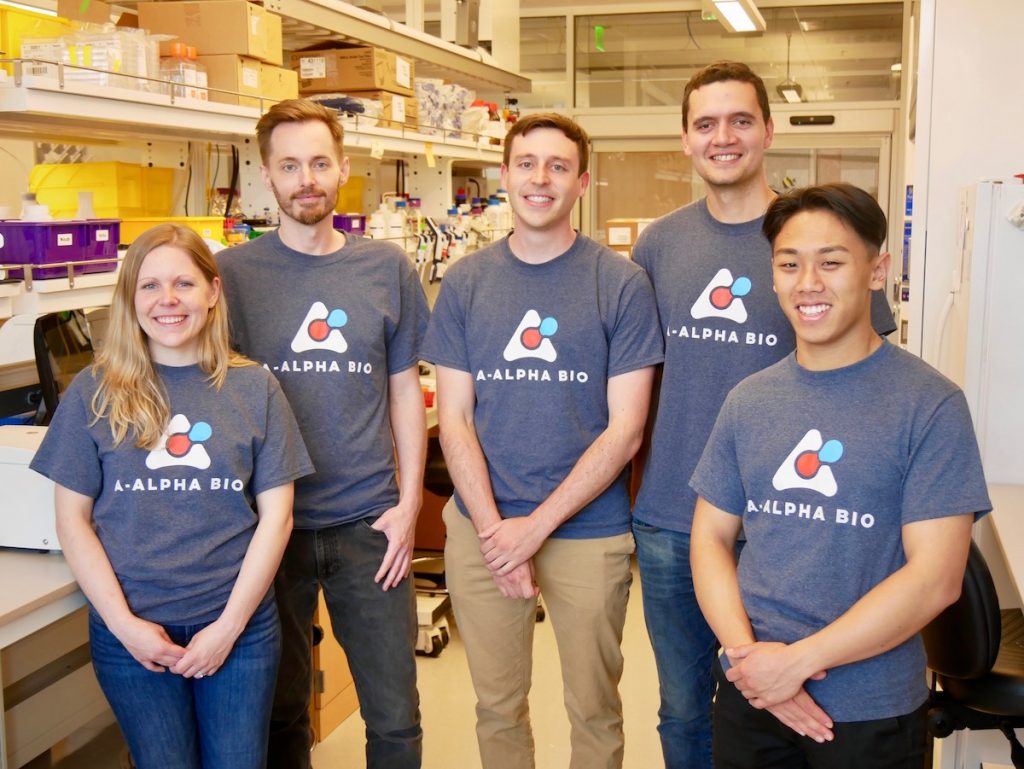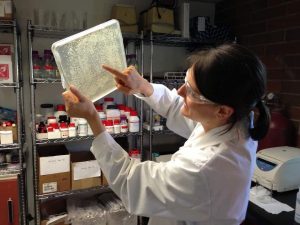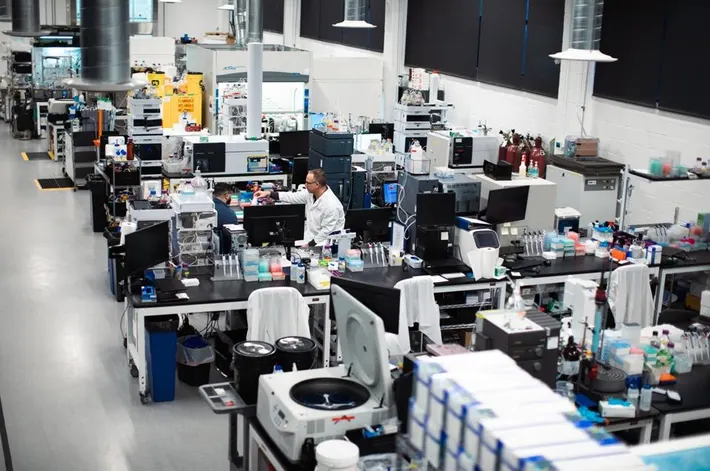Translational
Investigator
Program
We empower our researchers to turn their most promising discoveries into commercially viable assets. Trainees also receive the guidance needed to launch new companies.
10
Spinouts
(so far)
$1B+
Raised
by Alumni
$1.1B
Largest
Acquisition
As an academic research organization within the University of Washington School of Medicine, the Institute for Protein Design conducts translational research to ensure our innovations benefit the world. We’re proud to have seeded multiple biotech companies, especially in the Pacific Northwest region. However, as a non-commercial entity, the Institute receives minimal or no direct benefit from these commercial activities. Instead, we remain primarily funded through grants and philanthropic donations. We are grateful to all who generously support our mission.


About the Program
The IPD Translational Investigator Program serves as a launchpad for scientific entrepreneurs looking to turn their ideas into real-world impact. With access to the Institute’s cutting-edge computational resources, Core R&D Labs, and mentorship from within and beyond our walls, our program offers a comprehensive pathway for innovation.
We work closely with CoMotion, the universities’ innovation office, to develop robust patent portfolios that allow our teams to create social and commercial value.
Phases
01 EXPLORATION
We bring biologists, computer scientists, and other experts together to answer fundamental questions in protein science. Most projects begin here — and often on a whiteboard.
02 Translation
Equipped with the right tools and resources, our Translational Investigators deepen their discoveries. Guided by experienced mentors, promising ideas transform into tangible products and platforms.
03 INCUBATION
We encourage Translational Investigators to step into the role of founder. Projects at this stage remain at the UW while markets are analyzed and licensing agreements are developed.
04 IMPACT
Company formation with eventual employment is one important career path for researchers who train at our Institute. Our spinouts have created hundreds of new jobs and helped make Seattle the epicenter of the protein design revolution.


Spinouts
Cyrus Biotechnology
2014
Cyrus aims to use Rosetta, AI algorithms, and massively parallel cell-based screening to create unique therapeutics. The company has also created an online GUI that brings the core suite of Rosetta algorithms to over 100 life science companies. — cyrusbio.com
PvP Biologics
2016
PvP was founded to ease the burden of living with celiac disease. Acquired by Takeda Pharmaceuticals in 2020, the company developed an enzyme to break down gluten in the stomach that is in human clinical testing today. — takeda.com
Icosavax, Inc
2017
Icosavax was founded to develop safe and effective vaccines for a variety of infectious diseases. It was acquired by AstraZeneca in 2024. — astrazeneca.com
A-Alpha Bio
2018
A-Alpha is advancing technology to aid in the development of drugs that interact with multiple targets. This includes is a multiplexed quantitative platform for characterizing entire protein interaction networks in a single test tube. — aalphabio.com
Neoleukin Therapeutics
2018
Neoleukin was formed to advance proteins for cancer immunotherapy. It merged with New York-based Neurogene in 2023. — neurogene.com
Mopac Biologics, Inc.
2020
Mopac seeks to create safe, effective, and convenient therapies for autoinflammatory disease. The company’s lead molecule, MB1, is an oral protein inhibitor of IL-23R in preclinical development for the treatment of inflammatory bowel disease.
Monod Bio, Inc.
2021
Monod is developing advanced biosensors. Their technology combines binding, transduction, and amplification to detect a wide range of target molecules, enabling the development of simple, powerful sensors for biotechnology and medicine. — monod.bio
Lila Biologics, Inc.
2022
Lila aims to design highly selective integrin inhibitor therapeutics for diseases including idiopathic pulmonary fibrosis, a debilitating lung condition that affects millions worldwide.
Vilya, Inc.
2022
Vilya is using advanced computational design approaches to amass vast libraries of membrane-permeable peptides for drug development. — vilyatx.com
Archon Biosciences, Inc.
2023
Archon is advancing regenerative medicine and cancer therapy by developing treatments that combine off-the-shelf antibodies with de novo designed nanoparticles.
Discover how the UW helps researchers achieve impact
University of Washington researchers benefit from CoMotion‘s programs and services on their innovation journeys. These include innovation training, IP advising & protection, funding & mentorship, and licensing, startups & incubation. This video features Daniel Silva, a former IPD trainee and translational investigator who now volunteers as a translational advisor with the Institute for Protein Design Translational Investigator Program.
